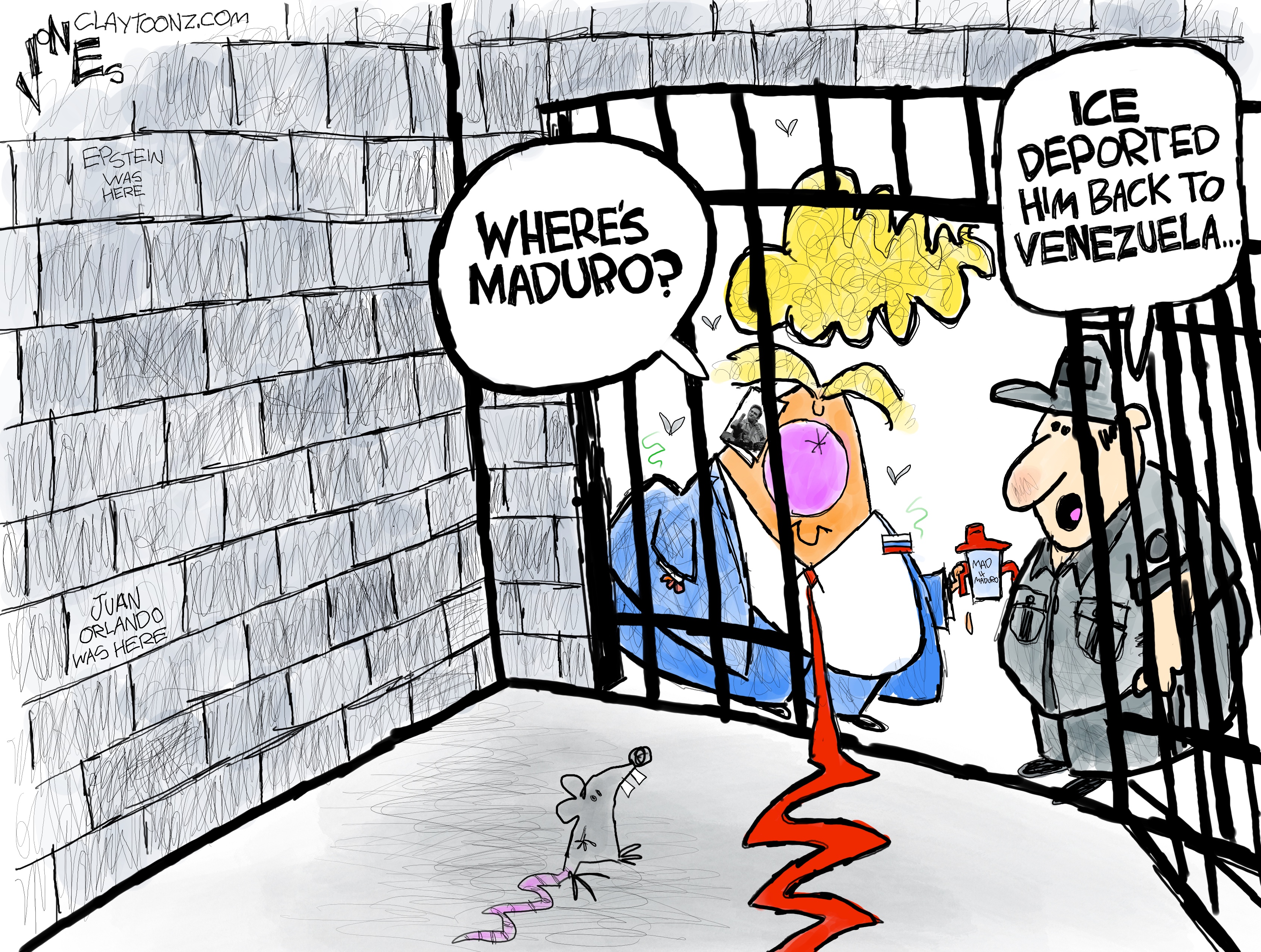John Bolton says the Monroe Doctrine is 'alive and well.' History shows us why that's a controversial statement


National Security Adviser John Bolton "proudly" proclaimed on Wednesday that the Monroe Doctrine is "alive and well" while announcing the Trump administration's limits on the amount of money Cuban-Americans can send to their relatives on the island and restricting U.S. travel to the country.
The proclamation wasn't taken lightly by critics — many view it as an imperial tool. But this isn't the first time the 1823 doctrine has been revived. The doctrine was originally written by the eponymous President James Monroe and his Secretary of State John Quincy Adams, who had the intention of keeping European influence out of the Western Hemisphere. But since then, no one has every really settled on its proper function. Here's a brief rundown of the doctrine's flip-flopping.
Roosevelt Corollary — In 1904, after a century of mostly isolationist foreign policy, President Theodore Roosevelt, a gung-ho imperialist, decided to turn the "passive" Monroe Doctrine into an active one by tacking on a corollary that said United States would intervene to ensure stability in the Western Hemisphere. He said the U.S. could operate as an "international police power" as it saw fit.
The Week
Escape your echo chamber. Get the facts behind the news, plus analysis from multiple perspectives.

Sign up for The Week's Free Newsletters
From our morning news briefing to a weekly Good News Newsletter, get the best of The Week delivered directly to your inbox.
From our morning news briefing to a weekly Good News Newsletter, get the best of The Week delivered directly to your inbox.
Cold War — During World War II, the the Monroe Doctrine was again mostly used as a defensive mechanism should hostile powers invade. But the Cold War changed that — multiple administrations sought to keep Soviet influence out of Latin America, often by supporting right-wing coups in the region. Former CIA Director Robert Gates cited the doctrine in his defense of the Iran-Contra Affair in 1984.
Kerry Doctrine — In 2013, Secretary of State John Kerry declared the Monroe Doctrine dead once and for all. Instead, the Obama administration gradually opened relations between the U.S. and Cuba, which the Trump administration is determined to undo, per The Washington Post.
A free daily email with the biggest news stories of the day – and the best features from TheWeek.com
Tim is a staff writer at The Week and has contributed to Bedford and Bowery and The New York Transatlantic. He is a graduate of Occidental College and NYU's journalism school. Tim enjoys writing about baseball, Europe, and extinct megafauna. He lives in New York City.
-
 Political cartoons for January 6
Political cartoons for January 6Cartoons Tuesday’s political cartoons include wrongful deportation, a monster under the surface, and more
-
 Why don’t humans hibernate?
Why don’t humans hibernate?The Explainer The prospect of deep space travel is reigniting interest in the possibility of human hibernation
-
 Would Europe defend Greenland from US aggression?
Would Europe defend Greenland from US aggression?Today’s Big Question ‘Mildness’ of EU pushback against Trump provocation ‘illustrates the bind Europe finds itself in’
-
 ABC News to pay $15M in Trump defamation suit
ABC News to pay $15M in Trump defamation suitSpeed Read The lawsuit stemmed from George Stephanopoulos' on-air assertion that Trump was found liable for raping writer E. Jean Carroll
-
 Judge blocks Louisiana 10 Commandments law
Judge blocks Louisiana 10 Commandments lawSpeed Read U.S. District Judge John deGravelles ruled that a law ordering schools to display the Ten Commandments in classrooms was unconstitutional
-
 ATF finalizes rule to close 'gun show loophole'
ATF finalizes rule to close 'gun show loophole'Speed Read Biden moves to expand background checks for gun buyers
-
 Hong Kong passes tough new security law
Hong Kong passes tough new security lawSpeed Read It will allow the government to further suppress all forms of dissent
-
 France enshrines abortion rights in constitution
France enshrines abortion rights in constitutionspeed read It became the first country to make abortion a constitutional right
-
 Texas executes man despite contested evidence
Texas executes man despite contested evidenceSpeed Read Texas rejected calls for a rehearing of Ivan Cantu's case amid recanted testimony and allegations of suppressed exculpatory evidence
-
 Supreme Court wary of state social media regulations
Supreme Court wary of state social media regulationsSpeed Read A majority of justices appeared skeptical that Texas and Florida were lawfully protecting the free speech rights of users
-
 Greece legalizes same-sex marriage
Greece legalizes same-sex marriageSpeed Read Greece becomes the first Orthodox Christian country to enshrine marriage equality in law
